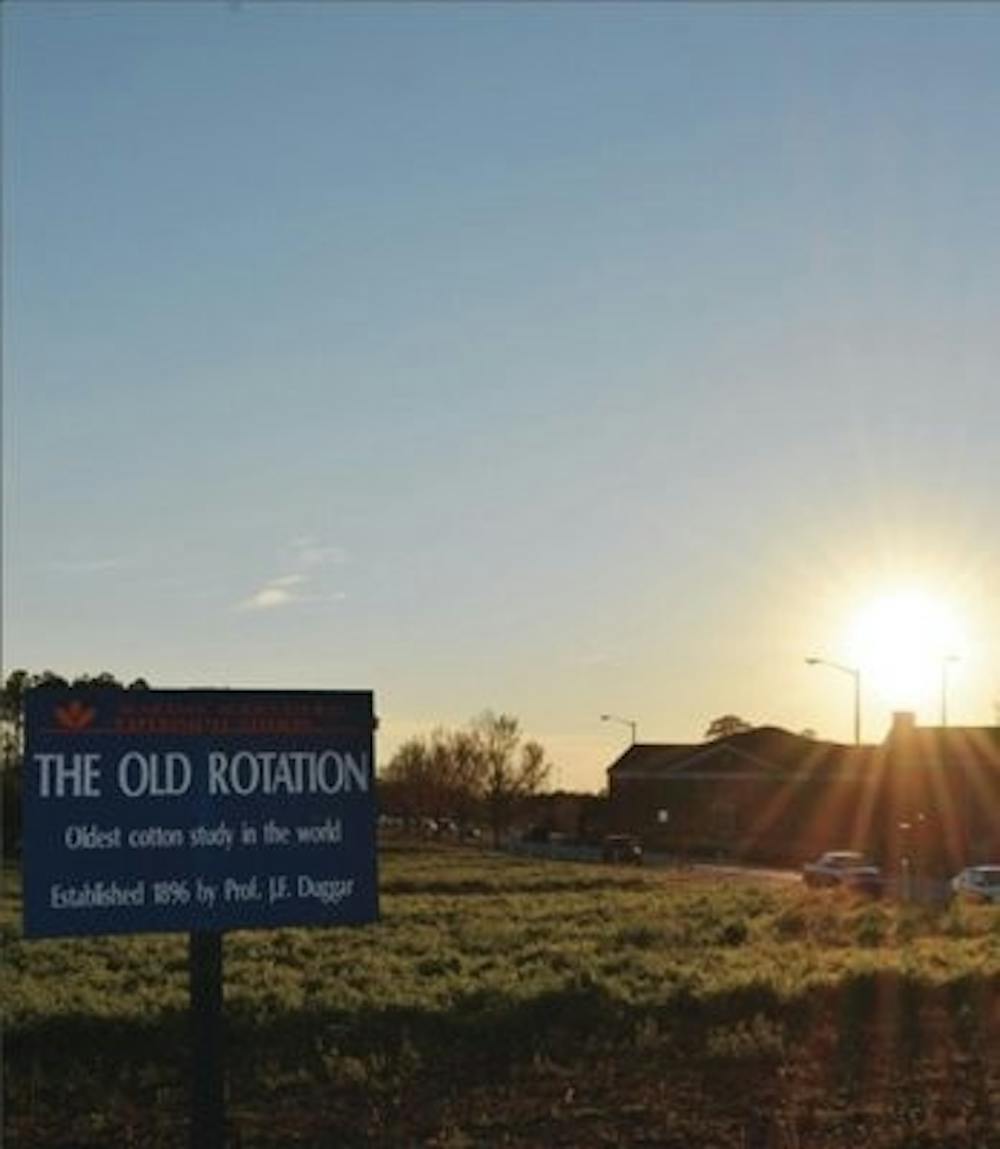With the baby boomer generation coming close to time of retirement, the agriculture department is seeing an increase in retirement for many professors, as well as, an increase in new practices.
Many of the senior professors are retiring or are close to retiring within the next year or two.
As a result of the GI Bill, many of the men who fought in World War II were allowed to complete Ph.D.s following their service. Many then pursued careers as professors. These professors were then replaced with the professors that are retiring now.
"We've all been here 30 years and it's time for us to move on," said Keith Cummins, retiring animal sciences professor. "Now you have this big slug that has moved through because World War II took people out and then 30 years later you educated us and then 30 years later we have another lump coming in."
All the senior professors in the department have grown up on some type of ranch or farm, which provided them with the hands on experience they needed to excel in the agriculture field, a strong advantage over those who did not.
"Our departments have labs that have a lot more hand-on stuff that we would not have done when I was in college because everyone in my class when I was an undergrad grew up on a farm except one kid," said Steve Schmidt, animal sciences professor. "He was very naive about a lot of things, but we didn't do those things in lab because we did those things at home."
Because many students interested in agriculture and animal sciences have grown up in urban areas, the department offers more hands-on experience in labs.
"Naturally hands-on experience brings to the table some components that are not available if you don't have hands-on experience, especially in agriculture, particularly animal agriculture, whether it's being hands-on with products and living animals," said Bob Ebert, retiring extension animal scientist. "It is important, but the flip side of that is a college degree is nothing more than a license to learn more, so if you're truly dedicated to being a university employee you'll make sure you keep updated on what's going on in the animal agriculture world."
Cummins said the amount of 'over-educated farm kids,' students who learned more hands-on experience at home than in the classroom, that need to replace the senior staff do not exist anymore.
"Those kind of people don't' exist anymore, but everyone still expects to eat," Cummins said. "Agriculture is a huge, massive industry in the United States, but students are just not all that interested in farming. Everyone still has it in their head that farming is the little red barn form grandma and grandpa's, but it's not. It's industrialized."
Although hands-on experience is irreplaceable, science moves on, Schmidt said.
"People are doing research that I was told was on the horizon when I was in school," Schmidt said. "Some of us that are older have to go back to school, so to speak, and get retrained and do some of the things that we are doing today."
Along with changes in training students, teaching methods have also changed.
Cummins believes that most of the teaching styles will lean toward lectures after most of the senior staff retires.
"It hasn't started as a process yet, but I would not be surprised if you (ended) up with six to eight lectures at the master's level if the (younger generations) did the teaching because money's tight," Cummins said. "You're only going to get a professor's job if you come in with two post docs and a grant in hand."
Although the retiring professors have enjoyed their time here at Auburn, it is time for them to accomplish other things.
"I'm facing uncharted waters because I have not been retired," Ebert said. "That's not saying I don't have a little bit of regret, but the flip side of that is, like I told many of my co-workers, when it comes to retire, you'll know. I know it's time for me to retire."
Along with Ebert, Cummins said he has also enjoyed his time here interacting with students who are always changing.
"Change always happens and this department and this college is going to change," Cummins said. "This college needs to move from growing food to producing food."
Although Schmidt is not retiring he said that he has faith in whoever takes his place.
"We have lot of bright, young people and I'm not worried that they won't be able to carry it on," Schmidt said.
Do you like this story? The Plainsman doesn't accept money from tuition or student fees, and we don't charge a subscription fee. But you can donate to support The Plainsman.





